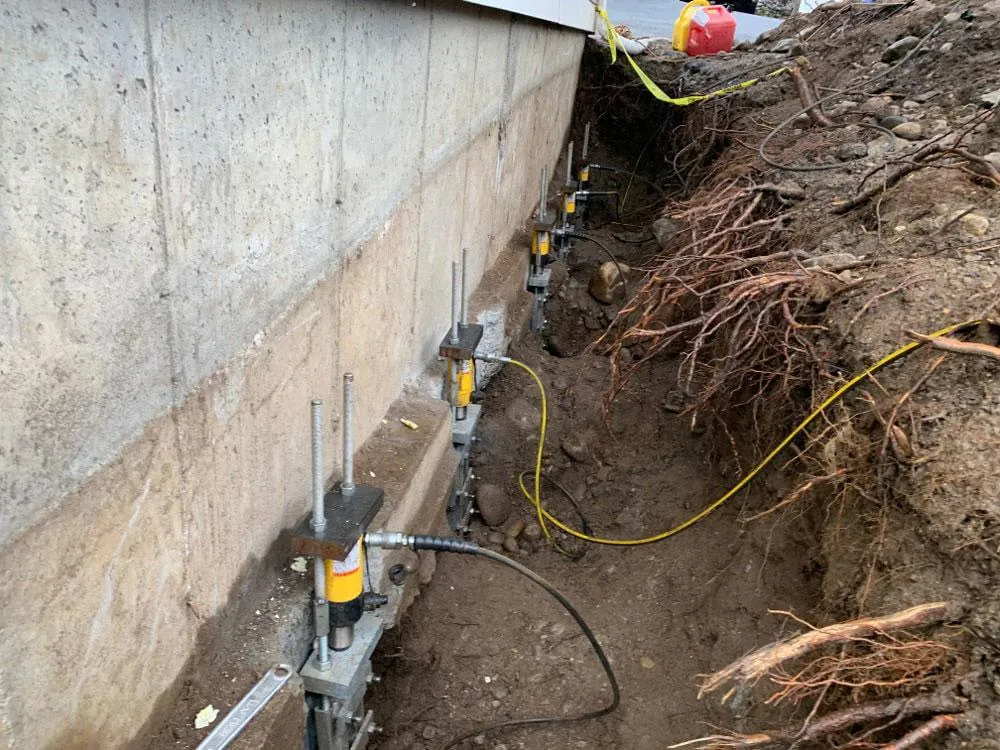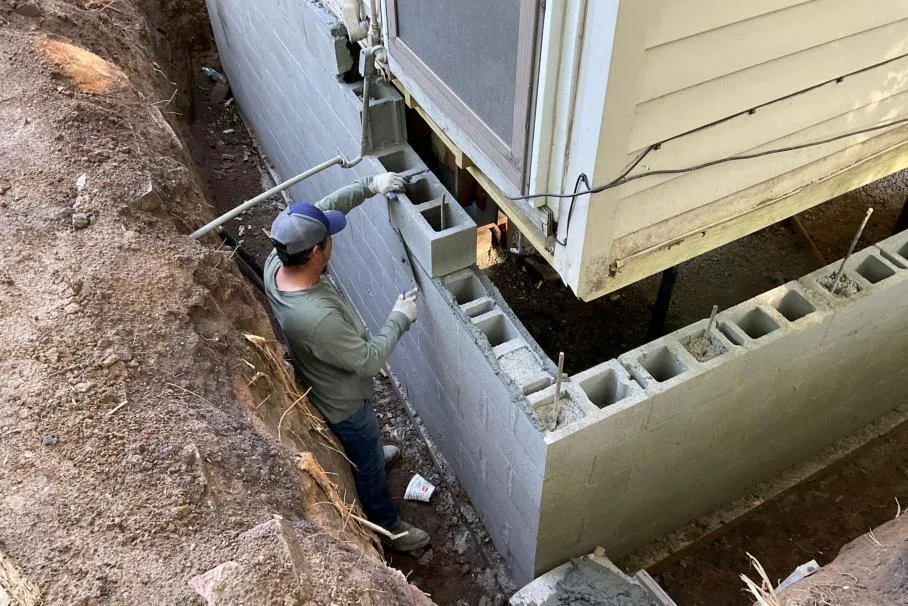
Serving Michigan counties: Macomb, St Clair, Wayne, Oakland, Genesee, and Tuscola Counties
Foundation Repairs near Macomb County, Michigan
Superior Surfaces LLC is Committed to superior quality and results!

AVOID COSTLY MISTAKES:
Do NOT hire an excavating contractor without first reading our free guide:
The ULTIMATE Excavation & Septic "Success Guide."

Foundation Repairs near Macomb County: What This Service Does
Many homes in Macomb County, Michigan, experience foundation issues like wall cracks, sticky doors, sagging floors, or basement water due to soil movement, moisture, and seasonal freeze-thaw cycles. Foundation repair solutions range from sealing cracks with epoxy and reinforcing walls with carbon fiber or steel, to installing piers for settling footings and upgrading drainage to control water. A proper repair starts with a thorough inspection to identify the cause and apply the right fix, ensuring long-term stability and protection for the home.
How Can We Help?


Benefits of Foundation Repairs near Macomb County
Timely repairs protect far more than concrete. They safeguard your living space, your budget, and your long-term plans. Here are advantages local homeowners appreciate:
Structural stability that prevents small issues from turning into major rebuilds.
Drier, healthier basements and crawl spaces that deter mold and musty odors.
Smoother doors and windows, fewer drywall cracks, and a more comfortable home.
Improved resale confidence; buyers worry about unknown issues, but documented repairs and moisture management build trust.
Peace of mind during Michigan’s wet springs and cold winters.
Working with a local team adds another layer of value. Crews familiar with Macomb County neighborhoods understand prevailing soils and drainage patterns. That practical experience translates into repair plans that are accurate, efficient, and respectful of your property.
Why Hire Foundation Repairs near Macomb County Pros
There is a difference between patching a crack and fixing the reason it formed. Hiring specialists for Foundation Repairs near Macomb County means you get the right diagnosis, the right materials, and the right sequence of steps. Professionals use leveling instruments, moisture meters, and load calculations to determine whether a wall needs reinforcement, a footing needs piers, and how to manage surface and subsurface water. They also understand building codes, permit requirements, and safety practices that keep your home and family protected throughout the project.
Quality shows in the details: how a crack is prepared before injection, how carbon fiber straps are anchored, where a sump discharge terminates, and whether downspouts move water far enough from the foundation. A reliable local pro stands behind the work, documents the process, and explains maintenance so your fix lasts.
See Our Excavation and Septic

✔️ Commercial Excavation
✔️ Residential Excavation
✔️ Basement Excavation
✔️ Demolition
✔️ Large Pond Construction
✔️ Small Pond Construction
✔️ Dozer Work
✔️ Forestry Mulching
✔️ Grading, Lot Clearing
✔️ Retaining Walls
✔️ Concrete Flatwork - Driveways, Sidewalk, Foundations
✔️ Foundation Repairs
✔️ Full Site Preparation
✔️ Foundation Repairs
Quality Services Launched FAST!

✔️Septic Install and Repair
✔️ Septic Inspections
✔️ Septic Installs Traditional Systems
✔️ Septic Tanks - Plastic/Poly
✔️ Septic Tanks - Concrete
✔️ Drain Field Replacement
✔️ Drainage Systems
✔️ Aerobic Treatment Systems
✔️ French Drains
✔️ Trenching
What Are You Waiting For?
The Process for Hiring Foundation Repairs near Macomb County
Clear steps keep your project on track and your stress low:
Consultation and inspection: Share what you are seeing and when it started. An in-person assessment follows.
Diagnosis and options: Get a plain English explanation of the cause, risks, and repair paths so you can choose with confidence.
Scope and timeline: Receive a written scope describing materials, access points, cleanup, and how daily life will be protected.
Permits and scheduling: If Michigan codes require permits, your team will handle approvals and schedule crews.
Repair execution: Work may include sealing cracks, reinforcing walls, installing piers, grading corrections, and drain upgrades.
Final walkthrough: Receive documentation and simple maintenance tips to support long-term performance.
Local Factors in Macomb County, Michigan
Michigan’s climate brings wet springs, humid summers, and cold winters that drive frost into the ground. Clay-rich soils can expand when wet and shrink when dry, pushing and pulling on basement walls and footings. Homes in low-lying areas or along drainage pathways may experience higher hydrostatic pressure after heavy rain. In older neighborhoods, downspouts often terminate too close to the house, soaking the backfill zone and stressing the wall. Smart repair plans pair structural fixes with water management: graded soil that slopes away from the house, extended downspouts, perimeter drains where needed, and sump systems sized for local storm patterns.
What to Expect During and After Repairs
Foundation work is methodical. Crews protect landscaping and interior spaces, stage materials, and communicate daily progress. You might hear drills, see temporary shoring, or notice small access pits where piers are installed. Dust control, debris handling, and careful cleanup are part of professional service. After repairs, movement should stop, moisture levels should drop, and cosmetic issues like drywall cracks should stabilize. Some cosmetic work is best scheduled after the structure is secure to avoid rework as the home settles.
Choosing With Confidence
When you are weighing estimates, focus on clarity and fit. Look for contractors who explain the why behind each step, show photos or diagrams, and offer choices that balance budget and risk. Ask how they will protect your yard, where they will route water, and what maintenance you will handle afterward. The right partner treats your home like their own, respects your time, and stays responsive from first call to final walkthrough.
Hours: Monday-Saturday 6:00am-6:00pm
Extended hours by appointment only.
Address: 23450 29 Mile Rd, Ray, MI 48096, USA
All rights reserved | Client Support Area